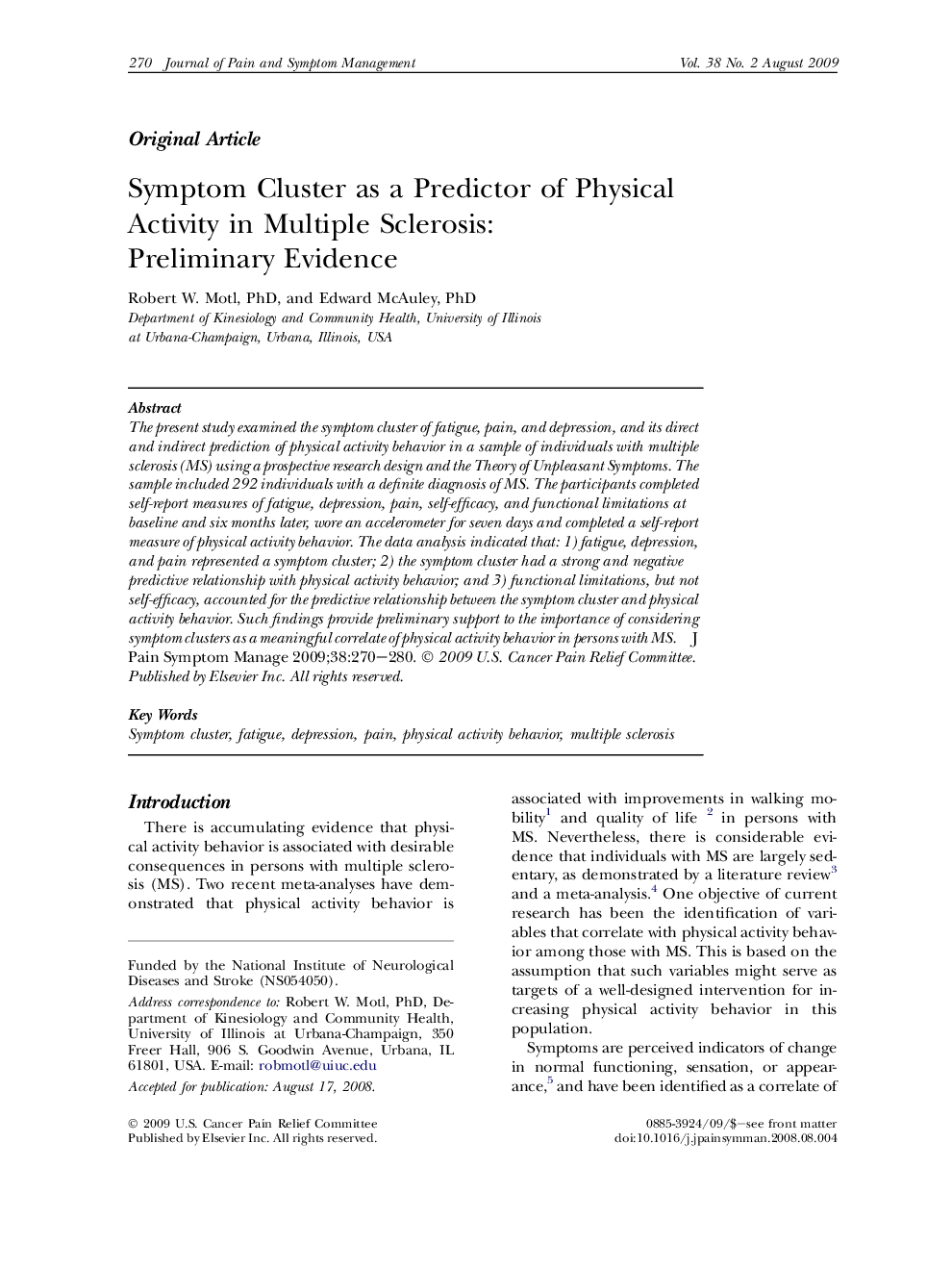| Article ID | Journal | Published Year | Pages | File Type |
|---|---|---|---|---|
| 2724583 | Journal of Pain and Symptom Management | 2009 | 11 Pages |
The present study examined the symptom cluster of fatigue, pain, and depression, and its direct and indirect prediction of physical activity behavior in a sample of individuals with multiple sclerosis (MS) using a prospective research design and the Theory of Unpleasant Symptoms. The sample included 292 individuals with a definite diagnosis of MS. The participants completed self-report measures of fatigue, depression, pain, self-efficacy, and functional limitations at baseline and six months later, wore an accelerometer for seven days and completed a self-report measure of physical activity behavior. The data analysis indicated that: 1) fatigue, depression, and pain represented a symptom cluster; 2) the symptom cluster had a strong and negative predictive relationship with physical activity behavior; and 3) functional limitations, but not self-efficacy, accounted for the predictive relationship between the symptom cluster and physical activity behavior. Such findings provide preliminary support to the importance of considering symptom clusters as a meaningful correlate of physical activity behavior in persons with MS.
